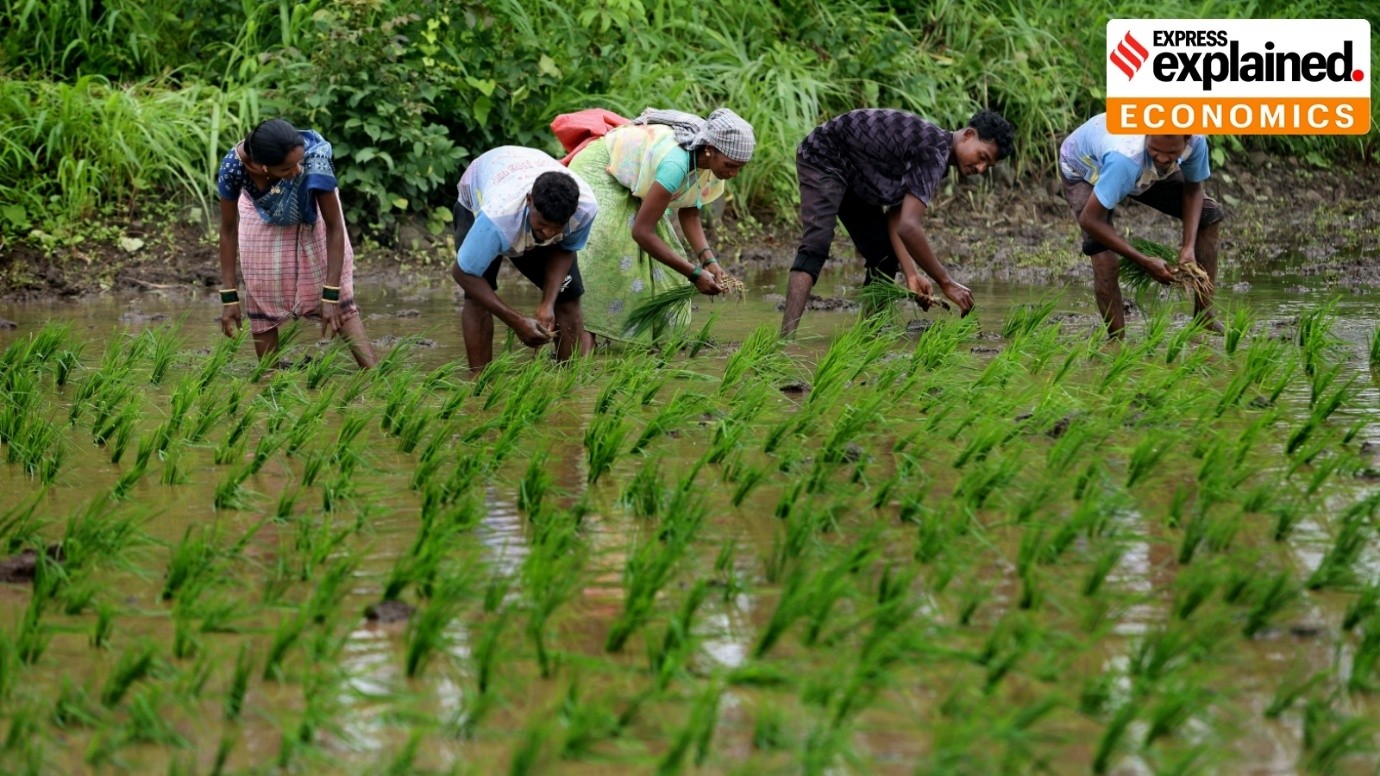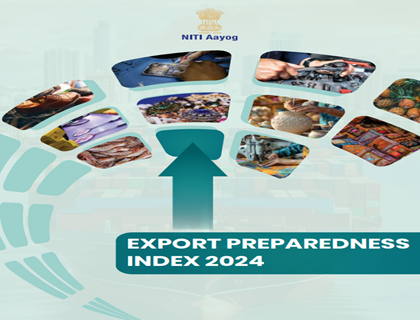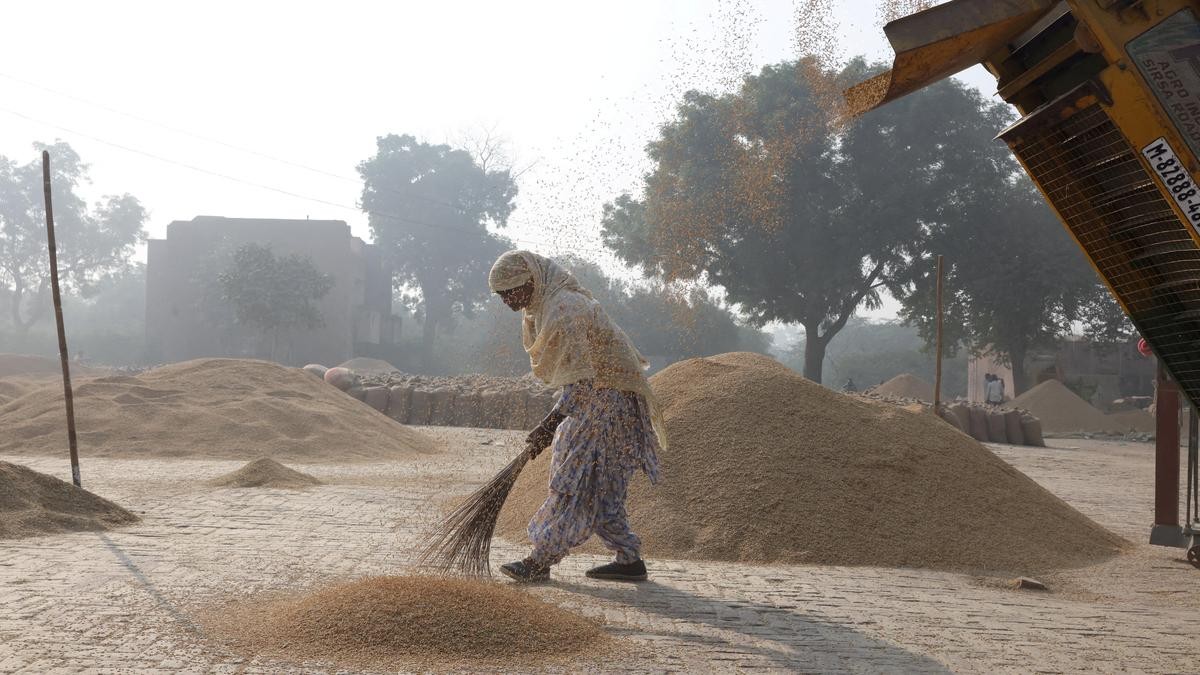Description
_of_sugarcane.jpg)
Disclaimer: Copyright infringement not intended.
Context
- The central government, announced an increase in the fair and remunerative price (FRP) of sugarcane by eight percent.
Fair and Remunerative Price (FRP)
- The Fair and Remunerative Price (FRP) of sugarcane is a statutory minimum price that sugar mills in India are required to pay to sugarcane farmers.
- It is announced by the Government of India based on the recommendations of the Commission for Agricultural Costs and Prices (CACP) to ensure fair returns to farmers for their produce.
- The FRP is determined based on various factors such as the cost of production, fair return to farmers, and overall demand-supply situation. The FRP is announced before the start of the sugarcane crushing season and is applicable for the entire season.
Key features of the FRP include:
- Announcement: The FRP is announced annually by the GOI before the start of the sugarcane crushing season, usually around October-November.
- Formula: The FRP is calculated based on a formula that takes into account the cost of production, including the cost of cultivation, land rent, labor, and other inputs, as well as a margin for the farmer's profit.
- State Advisory Prices (SAP): Some states also announce State Advisory Prices (SAP) for sugarcane, which are higher than the FRP. In such cases, sugar mills are required to pay the higher of the two prices.
- Payment: Sugar mills are required to pay the FRP/SAP to sugarcane farmers within 14 days of delivery of sugarcane to the mill.
- Penalties: Failure to pay the FRP/SAP can lead to penalties, including interest on the amount due and cancellation of the mill's license.
- The FRP has been a subject of debate and discussion, with some stakeholders arguing that it is too low to cover the cost of production, while others argue that it distorts the market and leads to inefficiencies in the sugar industry.
- The GOI has taken various measures over the years to address these concerns, including increasing the FRP and introducing measures to improve the efficiency of the sugar industry.
- Overall, the FRP plays a crucial role in ensuring a fair deal for sugarcane farmers and maintaining the viability of the sugar industry in India.

The recent increase in the Fair and Remunerative Price (FRP) of sugarcane
Revised FRP Details:
- The cabinet committee ratified the FRP for sugarcane at Rs 340 per quintal for the 2024-25 sugar season, pegged with a sugar recovery rate of 10.25 percent.
- This marks a historic surge in sugarcane prices, approximately 8 percent higher than the preceding season’s FRP.
- The revised FRP is slated to come into effect from October 1, 2024.
Impact and Benefits:
- The government claims that the FRP, which exceeds the cost of sugarcane by 107 percent, will bolster the prosperity of sugarcane farmers.
- It aims to benefit over 50 million sugarcane farmers, including their families, along with numerous stakeholders within the sugar sector.
- This move is touted as a realization of Modi’s pledge to double farmers’ income.
Minimum Price Assurance:
- The minimum sugarcane price stands at Rs 315.10 per quintal, applicable at a recovery rate of 9.5 per cent, ensuring farmers a baseline FRP even in instances of low sugar recovery.
|
COMMISSION FOR AGRICULTURAL COSTS AND PRICES (CACP)
The Commission for Agricultural Costs and Prices (CACP) is a statutory body in India that advises the government on the pricing policy for major agricultural commodities. It was established in 1965 as the Agricultural Prices Commission and was later renamed the CACP in 1985.
The main functions of the CACP include:
- Price Policy: The CACP recommends minimum support prices (MSPs) for 23 agricultural commodities, including cereals, pulses, oilseeds, and commercial crops. These MSPs are intended to ensure remunerative prices to farmers for their produce.
- Cost of Production: The CACP estimates the cost of production of agricultural commodities based on comprehensive surveys and analysis. This forms the basis for determining the MSPs.
- Price Trends: The CACP studies and analyses price trends of agricultural commodities in domestic and international markets to recommend appropriate MSPs.
- Input Costs: The CACP examines the trends in the prices of agricultural inputs such as seeds, fertilizers, pesticides, and machinery to assess their impact on the cost of production and MSPs.
- Market Structure: The CACP studies the market structure and marketing practices related to agricultural commodities to recommend measures for improving farmers' access to markets and ensuring fair prices.
- Crop Diversification: The CACP recommends measures for promoting crop diversification based on market demand and profitability.
- Other Policy Issues: The CACP advises the government on various other policy issues related to agriculture, including pricing, procurement, and marketing.
The recommendations of the CACP are non-binding on the government, but they are usually accepted with or without modifications. The MSPs recommended by the CACP are announced by the government before the sowing season to provide farmers with price certainty and encourage them to adopt modern agricultural practices.
Overall, the CACP plays a crucial role in ensuring remunerative prices to farmers and promoting agricultural growth and sustainability in India.
|

READ: https://www.google.com/url?sa=i&url=https%3A%2F%2Fwww.iasgyan.in%2Fdaily-current-affairs%2Ffair-and-remunerative-price-frp-15&psig=AOvVaw1VTbddtxhKS6iIDohA0tv3&ust=1708766551766000&source=images&cd=vfe&opi=89978449&ved=0CBUQjhxqFwoTCLCz982RwYQDFQAAAAAdAAAAABAH
|
PRACTICE QUESTIONS
Q. Which of the following statements regarding the Fair and Remunerative Price (FRP) of sugarcane in India is/are correct?
- The FRP is a statutory minimum price that sugar mills are required to pay to sugarcane farmers.
- The FRP is announced by the Government of India based on the recommendations of the Commission for Agricultural Costs and Prices (CACP).
- The FRP is determined based on factors such as the cost of production, fair return to farmers, and overall demand-supply situation.
- The FRP is applicable only for a specific duration within the sugarcane crushing season.
Select the correct answer using the codes below:
A) 1 and 2 only
B) 1, 2, and 3 only
C) 1, 3, and 4 only
D) 1, 2, 3, and 4
Answer: B) 1, 2, and 3 only
Explanation:
- True: The Fair and Remunerative Price (FRP) is indeed a statutory minimum price that sugar mills in India are required to pay to sugarcane farmers.
- True: The FRP is announced by the Government of India based on the recommendations of the Commission for Agricultural Costs and Prices (CACP).
- True: The FRP is determined based on various factors such as the cost of production, fair return to farmers, and overall demand-supply situation.
- False: The FRP is announced before the start of the sugarcane crushing season and is applicable for the entire season, not just for a specific duration within the season.
|




_of_sugarcane.jpg)
_of_sugarcane.jpg)








